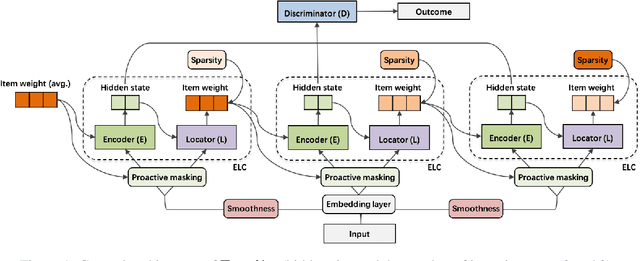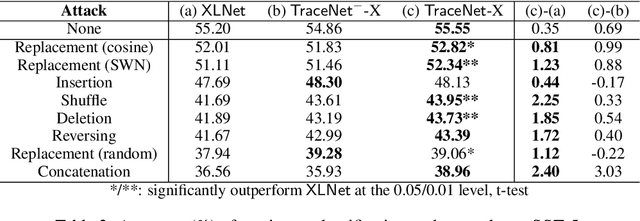TraceNet: Tracing and Locating the Key Elements in Sentiment Analysis
Paper and Code
Feb 28, 2022



In this paper, we study sentiment analysis task where the outcomes are mainly contributed by a few key elements of the inputs. Motivated by the two-streams hypothesis, we propose a neural architecture, named TraceNet, to address this type of task. It not only learns discriminative representations for the target task via its encoders, but also traces key elements at the same time via its locators. In TraceNet, both encoders and locators are organized in a layer-wise manner, and a smoothness regularization is employed between adjacent encoder-locator combinations. Moreover, a sparsity constraints are enforced on locators for tracing purposes and items are proactively masked according to the item weights output by locators.A major advantage of TraceNet is that the outcomes are easier to understand, since the most responsible parts of inputs are identified. Also, under the guidance of locators, it is more robust to attacks due to its focus on key elements and the proactive masking training strategy. Experimental results show its effectiveness for sentiment classification. Moreover, we provide several case studies to demonstrate its robustness and interpretability.
 Add to Chrome
Add to Chrome Add to Firefox
Add to Firefox Add to Edge
Add to Edge